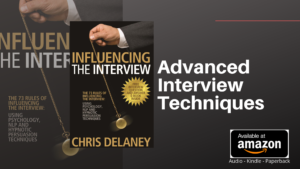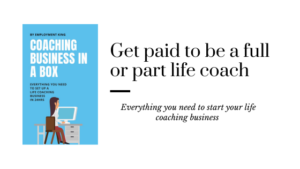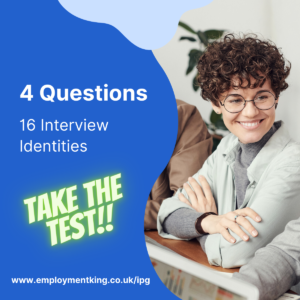12 Job Interview Questions and Answers for a Drug Advice Worker
Often out of 300 applicants only 6 candidates will be interviewed. In most drug advice worker job interviews you will be asked around 10 interview questions during a 45-minute interview. To increase your job chances of securing a job offer you will learn the answers to 12 sector-related job interview questions.
The key to passing a drug advice worker job interview in preparation and practice, this sounds obvious but is often overlooked, with the average interviewee spending around only 60 minutes preparing for their job interview.
This article will help you to prepare and to pass your next drug advice worker job interview in 3 separate ways.
1. You will learn over 10 common asked interview questions for your job position.
2. You will be given an explanation of the type of answer the interviewer is looking for ( a guide to what the employer wants you to discuss)
3. You will be given an example job interview answer for each individual interview question, allowing you to tweak this answer, making it relevant to your own experiences.

Job Interview Questions and Answers for a Drug Advice Worker
Job Interview Question 1:
“Tell me about yourself?”
One of the most common asked questions in interviews normally asked at the beginning of an interview, this question gives you the opportunity to deliver a short statement about your drug advice experiences and skills relevant to advising’s clients around the usage, the potential harm of drugs and how to become less dependent of substances.
- Start with a “selling” line that will highlight your main strength and/or achievement
- Keep each point brief and relevant
- End this answer with a reason why you’re looking for a new drug advice job
Potential Interview Answer
“I’ve been working as a drug advice worker for adults for the past 10 years and have an exceptional record in reducing substance misuse with my clients. In all my previous drug advice roles I have used my rapport building skills to increase client retention and lower the appointment DNA rate, this was the secret to my success because the more sessions the users attended the more support and advice I could offer them. I am now ready for a new challenge and for several years I have wanted to support teenage drug users which is why I applying for this position”
Job Interview Question 2:
“Why did you leave your last job?”
Be positive with this answer and smile – employers like to hear that you left for a good opportunity or reason, a chance to do something special or for a good career move.
- Start the answer with a look back
- Explain what you enjoyed about your previous role
- Give a Positive reason for leaving
Potential Interview Answer
“I enjoyed working at Company Name and really enjoyed the interaction of working with a wide range of individuals-I feel I gained a lot of transferable skills from this experience, which I can use in this role. In my last role, we overachieved our KPIs and was recognised as a center for reducing the number of clients who were drug dependant. I left this position because the contract funding came to an end”
Job Interview Question 3:
“Why do you want this position?”
Your research will pay off with this question; explain you have always wanted to work for their company and the reason why. Discuss how your goal has always been to work in the substance misuse sector as you always wanted to (job criteria) and finally finish by explaining how your previous experience or qualifications will add value to the company.
Potential Interview Answer
“I’m passionate about helping clients become less drug dependant. I have worked with adults for the past 10 years but now I would like to help teenagers. this is because most of my adult clients said they started to abuse substances in their teenage years, and I believe if I can support teenagers then fewer people will be drug users as adults”

Job Interview Question 4:
“Do you work well within a team?”
Some people are thrown when they are asked this question as many drug advice workers work one on one. Every company works as a team, but part of this team approach is to offer one to one drug advice session. Give an example of when you have worked well within a team.
Potential Interview Answer
“A team always works better than an individual as you have a wider skill base and more collective experiences to rely on. You also have the advantage of motivating to achieve goals and targets. In my last role as one of the more experienced drug advice workers, I would often mentor new employees, share my experience and answer any drug/client-related questions. I think this team approach is why we met our KPIs”
Job Interview Question 5:
“Did you get on well with your last manager?”
A dreaded question for many! When answering this question never give a negative answer. “I did not get on with my manager” or “The management did not run the business well” as this will show you in a negative light and reduce your chance of a job offer. Answer the question positively, talk about how as a drug advice worker you often worked independently.
Potential Interview Answer
“As an outreach drug advice worker, I often worked independently to support my clients. I would meet my line manager at least once a month to discuss my caseload and look at how we can support my clients. So in this way, I think we worked well together”
Job Interview Question 6:
“How would you be an asset to the drug advice team?”
Think again about the job specification and the skills needed for this role. Have a paragraph prepared highlighting how you will be able to complete the main drug advice worker criteria and what you can bring to the team. It goes without saying that this paragraph should be positive.
Potential Interview Answer
“I have worked in this industry for 15 years and have made excellent contacts with support agencies and built good working relationships which will be of advantage to any employer who employees me. But I think the main quality I can bring to the organisation is my experience and my record of reducing substance misuse within my client group. I have undertaken, often privately funded, courses to upskill to support clients and I’m happy to share these skills, knowledge and techniques with you”
Job Interview Question 7:
“What are your strengths relating to the drug advice worker position?”
This is one of the most common questions you will be asked. Give an answer relevant to the skills and qualities relevant to being a drug advice worker. The interviewer is trying to find if your strengths match the job criteria for their organisation.
Potential Interview Answer
“My ability to get clients to open up to me about the reasons and fears why they use drugs on a regular basis. Once clients discuss their fears I find that I can then support them to be less dependant on drugs more quickly then if I just jump into to quitting techniques”

Job Interview Question 8:
“What are your weaknesses?”
Again, another commonly asked question. A frequent mistake to make when answering this question is to say something negative like “I can sometimes let things get on top of me”. Be positive and sell yourself with every interview question, turn a negative into a positive.
Potential Interview Answer
“I was really keen to learn how to motivate clients, as I felt if I understand the psychology of motivation I would be better suited to supporting my clients. But my company didn’t offer this type of training so I paid for a course myself. If there is something I don’t know I generally look for the answer”
Job Interview Question 9:
“Do you know anything about our organisation?”
Often one of the first questions you will be asked during the interview, employers want employees who will stay with the company, this question and answer will show the employer that you know the company’s history and feel they will be a good employer to work for.
It also shows the employer that you think ahead and carries out research. Answer this question with:
- The length the organisation has been operating for.
- How the company started
- Awards the company has won
- Where they are going (have they won any new contracts)
All this information is normally found on the internet; on the company home page or about us page.
Potential Interview Answer
“I know a great deal about your organisation, before I applied for the job position I researched the company. I really like how the company started small 10 years ago and has grown to a company of 25. You started by operating in schools offering one to one drug advice session and now you have grown and work with adults, children and offer a web advice service”
Job Interview Question 10:
“Do you think you have enough drug worker experience for this position?”
If you’re asked this, then the interviewer does not believe you have enough experience. If you believe you have the required drug advice worker experience you need to make this clear to the employer so they have no doubts.
If you do not have the experience they stated, you need to show the employer you have the skills, qualities and knowledge that will make you equal to people with experience but not necessarily the skills. It is also good to add how quick you can pick up the routine of a new job role.
Potential Interview Answer
“Altogether I have 15 years experience in this industry, in my current role I work in one to one settings and deliver group work. My caseload is 35 adults aging from 18+, I sue a mixture of techniques and advice session to support my clients. I meet client face to face and speak to them on the phone and via e-mail”
Job Interview Question 11:
What is your biggest achievement?
We have all achieved many things throughout our career. Talk about how you had a goal you initially thought you couldn’t achieve and then through working hard you achieved your goal. Relate this goal, if you can, to a drug advice worker role.
Potential Interview Answer
“I was working with one client who had been drug dependent for a long time before I became his caseworker. He was well known to the organisation, he would come for a few sessions, drop off the radar for 6 months and return to a drop-in session to start the cycle again. I decided to adopt a new approach that got the client to commit to a number of sessions, rather than allowing him to come and go as he pleased. These boundaries seemed to work and he attended on a more regular basis, this resulted in the client reducing in the first instance the number of drugs he used”
Job Interview Question 12:
“Do you have any questions for me?”
Good interview questions to ask interviewers at the end of the job interview include questions on the company growth or expansion, questions on personal development and training and questions on company values, staff retention and company achievements.

Conclusion
Many people are afraid of job interviews. The truth is if you prepare for your job interview, by predicting the job interview questions, you can easily prepare your job interview answers.
If your job interview answers highlight your unique selling point, are stated in the positive and are said in a confident manner, then you can influence the job interview to increase job offer.
Interview Preparation Resources












